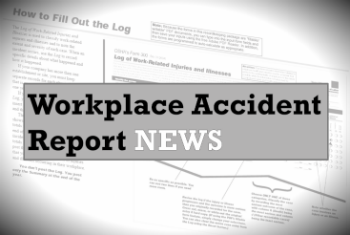 ERIC KRIEGER
ERIC KRIEGER
Risk Control Advisor
OSHA recently announced new requirements for reporting severe injuries and updated the list of industries exempt from record-keeping requirements. These new workplace accident report rules are effective in federal OSHA states Jan. 1, 2015.
States with their own OSHA program (such as Michigan) must enact their own standards that are at least as effective as the federal rules within six months of their publication in the Federal Register, the daily newspaper of the federal government. Michigan and other states will write the new federal regs into their own workplace accident report rules.
Here's a super-brief Q&A on the updates:
Q: Why is OSHA making these changes?
A: OSHA believes the updates will help them better identify workplaces where employees may be at greatest risk. The made-over regs "will significantly enhance the agency’s ability to target our resources to save lives and prevent further injury and illness," according to Dr. David Michaels, assistant secretary of Labor for Occupational Safety and Health.
Q: Remind me again: What were the old rules?
A: Under the old record-keeping rules (in effect until the end of the year), there are two instances when employers must notify OSHA:
1.) Employers are required to report a work fatality within eight hours.
2.) Employers are required to report within 24 hours a single workplace accident that results in in-patient hospitalization of three or more employees.
Q: What do the new workplace accident report rules say?
A: The new regulations, effective Jan. 1, require:
1.) 24-hour reporting of all work-related hospitalizations, amputations, or loss of an eye
2.) 8-hour reporting of all fatal workplace accidents (this stays the same)
All employers, including those partially exempt because of company size or industry classification, will be required to comply with the new severe injury and illness-reporting requirements. All employers are required to meet the fatal workplace accidents requirement.
The new rule does not change OSHA’s basic obligations for record-keeping. Employers with 10 or fewer employees still are exempt from the basic OSHA record-keeping requirements. However, OSHA has updated the list of specific industries that are exempt from the requirement to keep routine injury and illness records. OSHA updated the exempt industries list to cut out some of the sectors with low injury and illness rates.
Here's some background: The previous exemption list was based on the old Standard Industrial Classification (SIC) system. The new workplace accident report rule uses the North American Industry Classification System (NAICS) to classify establishments by industry, and the new exemption list is based on updated injury and illness data from the Bureau of Labor Statistics. The new rule maintains the exemption for any employer with 10 or fewer employees, regardless of their industry classification, from the requirement to routinely keep records of worker injuries and illnesses.
Q: Federal regs are all about forms. So what forms do I actually need to fill out to meet the OSHA reporting requirements?
A: The official OSHA injury and illness record-keeping forms are:
-Log of Work-Related Injuries and Illnesses (OSHA Form 300). Complete only if a recordable work-related injury or illness has occurred.
-Summary of Work-Related Injuries and Illnesses (OSHA Form 300A). Complete annually even if no recordable work-related injuries or illnesses have occurred.
-Injury and Illness Incident Report (OSHA Form 301). Complete only if a recordable work-related injury or illness has occurred.
OSHA does accept equivalent forms, provided that they contain the same information and are understandable. For instance, many employers use an insurance form in place of the Incident Report form. For more details on the forms, please check out OSHA's page on keeping records.
What other questions do you have about the workplace accident report regs? How will you share this intel with your people? Please sound off in comments!
Related Posts:
How to Train for the New OSHA Hazard Communication Standard
4 Key Takeaways from Our Hazcom and GHS Training Webinar
.png?width=69&height=53&name=Acrisure%20Logo%20(White%20Horizontal).png)


